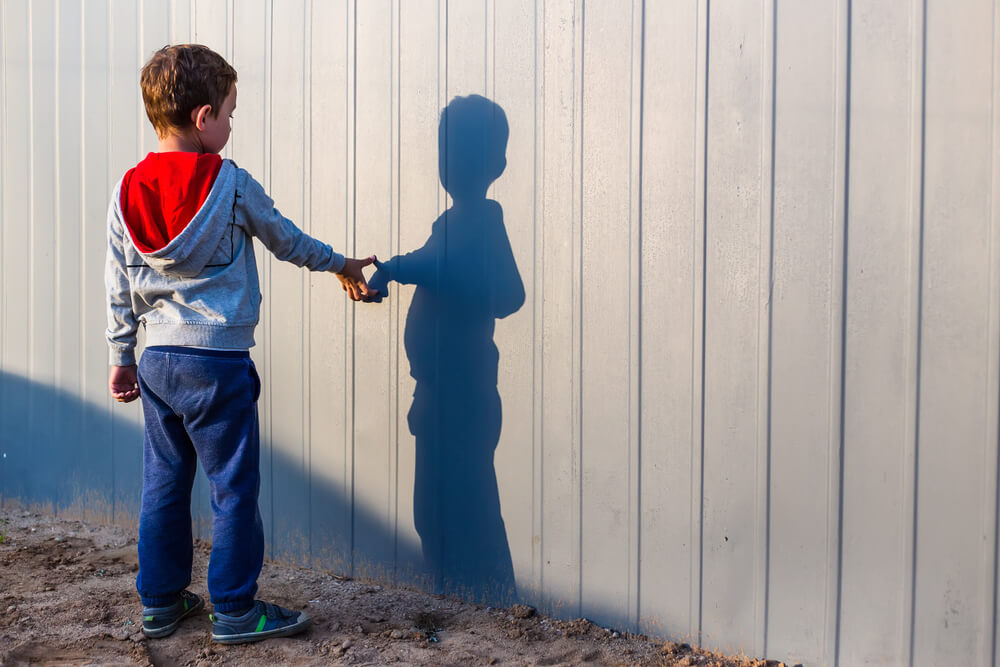Parenting a Glass Child: Understanding, Supporting, and Nurturing

Glass child syndrome often appears in children with siblings who are chronically ill or have mental or physical disabilities as a reaction to receiving less attention from their parents. We will explore the glass child meaning and how parents can help their children avoid or overcome this syndrome.
Contents:
- What is Glass Child Syndrome?
- How Do I Know If I Have a Glass Child? Signs and Symptoms
- Effects of Glass Child Syndrome
- Parenting a Glass Child
- FAQs
Tools to Support and Nurture a Glass Child
Supporting and nurturing a glass child involves understanding their unique needs and ensuring their safety and well-being. Here are some valuable apps that can assist in monitoring and supporting your glass child effectively:
| Tool | Description | How It Helps in Parenting a Glass Child |
| Findmykids | A location tracking app designed to ensure the safety of your child. | — Ensures you always know where your child is and what they are doing — Alerts you to any changes in their routine or location, ensuring their safety — Helps to monitor their gadget usage |
| Life360 | A family locator app that provides real-time location tracking and alerts. | — Monitors your child’s whereabouts — Provides peace of mind through constant monitoring and instant alerts |
| Google Family Link | An app that helps parents manage their child’s digital activity and location. | — Monitors both physical and digital activities — Ensures safe and balanced use of technology |
What is Glass Child Syndrome?

tong patong/Shutterstock.com
Imagine peering into the world from behind a pane of glass; that’s the symbolism behind the term “glass child syndrome.” Named by Alicia Maples, a music arts educator after her 2010 TED Talk, the term refers to siblings of chronically ill or disabled individuals.
Often, they grow up feeling unseen, hence the “glass,” due to the extra attention their sibling needs. This dynamic can lead to a host of behavioral and psychological traits, notably hyper-independence and the likelihood of becoming chronic “people-pleasers.”
While these traits may seem familiar to many, it should be clarified that glass child syndrome is not an officially recognized disorder within the medical or psychological community. However, that doesn’t mean its implications can be disregarded—it’s a vital topic for parents to be aware of, to ensure the emotional needs of all their children are addressed.
Glass Child Meaning
The term “Glass Child” refers to a healthy child living in a family where another sibling suffers from chronic illness or disability. Due to the high demand for care and attention for their unwell sibling, these children might feel forgotten or disregarded.
Like a glass pane, they are transparent and often go unnoticed, leading to feelings of neglect.
Despite not being an officially acknowledged medical or psychological syndrome, its effects can substantially influence a child’s development, fostering an inclination towards people-pleasing habits and overwhelming independence resulting from living in their sick sibling’s shadow.
Characteristics of a Glass Child

spixel/Shutterstock.com
Understandably, the natural inclination of glass children is to don an air of maturity beyond their years, often developing an excessive sense of independence, or as some may term it, hyper-independence.
This trait is predominantly nurtured by their need to dissolve into the backdrop and not add to their parents’ stress. This very trait, unfortunately, can quite swiftly turn into a norm of self-reliance, crippling them from seeking aid in all forms.
While some parents quickly see this independence as one of their child’s strengths, it is often due to glass child syndrome.
What’s more, an incessant need to please people becomes ingrained in their personality. They’re invariably on their toes, striving to be the perfect child to not further burden their already strained parents. This may garner many accolades from onlookers, but the constant pressure of perfectionism can lead to mounting anxiety internally.
These characteristics—hyper-independence, people-pleasing tendencies, and striving for unattainable perfection—make up the core personality of many glass children, forming a complex web where each trait feeds into the other.
How Many Young People Are “Glass Children?”
While it’s challenging to precisely pinpoint the number of glass children because the syndrome isn’t officially recognized, we can make certain inferences based on existing data.
Did you know that 8% of young people in the North have a chronically ill or disabled family member? Meanwhile, in the USA, a considerable 17% of children wrestle with developmental disabilities.
So, acknowledging the existence of glass child syndrome becomes all the more relevant. Despite this recognition gap, it’s surely impacting a significant number of families.
How Do I Know If I Have a Glass Child? Signs and Symptoms

New Africa/Shutterstock.com
Recognizing a glass child can be a subtle process. They often exhibit certain symptoms which indicate their struggle with the imbalance of attention in the family.
Some signs that your child may have glass child syndrome are:
- Anxiety and withdrawal: Glass children may appear to be introverted, silently dealing with stress and perceived neglect. Their silence, however, speaks volumes about their internal strife.
- Depression: If you notice your child is starting to disengage in conversation or things they used to enjoy, have a lack of energy or self-esteem, and express melancholy, this could be a sign.
- Overcompensation: A common symptom is striving for perfection or trying to be ‘the perfect child.’ They do this to relieve their parents of any additional stress and garner more attention.
- School struggles: Their emotional turmoil may spill over, affecting their academic performance. Glass children may struggle to meet educational goals notwithstanding their potential.
- Empathy beyond their years: Despite their personal struggle, they tend to display heightened empathy drawn from understanding their sibling’s plight. This is a bittersweet sign of their maturity at a tender age.
- Feeling invisible: Feeling overlooked or less important compared to their sick sibling can lead to an intense sense of isolation.
- Bearing adult responsibilities: Taking on roles not age-appropriate, like caregiving, is another hallmark. They grow up too fast because they have to.
Remember that these symptoms can vary depending on birth order and family size. If noticed, steps should be taken to address these issues promptly.
Effects of Glass Child Syndrome

EvgeniiAnd/Shutterstock.com
Being a glass child can significantly impact a child’s developmental trajectory. Because the focus is often set heavily on the ailing sibling, glass children often mature ahead of their years. They quickly learn to be self-sufficient, which on the surface may seem like a positive trait; however, it can carry negative implications.
This premature independence can make kids feel incredibly isolated, as they often carry the weight of adults’ unmet needs. In an attempt to lighten their parents’ burden, they may suppress their own feelings, turning into “little adults.” Consequently, they might struggle with expressing their emotions freely, leading to feelings of guilt, confusion, and withdrawal.
School performance might suffer too. Peer problems and decreased academic performance can be typical as they often grapple with anxiety, depression, and post-traumatic stress symptoms. Their social activities and interactions might also be compromised due to their peculiar family situation. As they grow older, this can potentially lead to difficulties in forming meaningful relationships.
On the flip side, some glass children are resilient and can use this experience as a catalyst for empathy and understanding. Yet, it’s essential to recognize the potential struggles and provide appropriate guidance and support for these children to thrive.
Glass Child Syndrome in Adults

voronaman/Shutterstock.com
As adults, glass children may struggle with over-responsibility and aggression due to the emotional suppression they experienced in their childhood.
They might have anxiety and depression, stemming from feelings of being overlooked. Often these individuals may have difficulty setting personal boundaries, displaying a heightened tendency to please people.
They also are likely to exhibit excessive independence, a trait developed from taking on responsibilities beyond their years during childhood.
It’s key to remember that with appropriate emotional support and guidance during their crucial development years, these unhealthy behaviors and characteristics can be substantially reduced.
Parenting a Glass Child

Rawpixel.com/Shutterstock.com
When parenting a glass child, it’s crucial that you discern the subtle signs of struggle. Your attention might be soaked up by the needs of their sibling, but remember every child yearns to be seen, heard, and understood.
Glass children are masters at disguising their needs and desires, making it even more necessary for you to stay vigilant. It’s important to realize that your child may not be as strong as they appear during difficult times when their sibling requires more attention.
Supportive Technology for Glass Child Parenting
Consider utilizing the Findmykids app, a comprehensive tool designed to enhance the well-being and safety of children. With features like real-time GPS tracking, geofencing alerts, and SOS notifications, the app provides peace of mind for parents of glass children, ensuring their safety and security in various environments.
Additionally, the Findmykids app offers valuable support for parents of chronically ill or disabled siblings, allowing them to monitor and protect their vulnerable children while attending to the needs of their glass child. By incorporating technology into your parenting approach, you can effectively navigate the complexities of raising a glass child and promote their emotional well-being.
Discover peace of mind with the Findmykids app—your trusted companion in keeping your glass child safe and secure. Download now to leverage advanced features like real-time GPS tracking and geofencing alerts, ensuring your child’s well-being wherever they go.
How to Best Support Your Glass Child

Evgeny Atamanenko/Shutterstock.com
- Carve out special time just for them. Your child may develop Glass Child Syndrome due to the disproportionate attention they receive between them and their sibling. Weekend outings, bi-weekly game nights, or even a simple daily chat can make a great difference. These shared moments can foster a sense of importance and individuality in your child, assuring them that their feelings, thoughts, and needs matter as much as anyone else’s.
- Teaching values and life lessons are paramount in every child’s upbringing, and glass children are no different. Helping them understand empathy, patience, and resilience will provide a solid foundation for the future.
- Establish predictable routines. Routine and predictability can provide a sense of stability and security for glass children. Establish daily routines for meals, bedtime, and homework to help them feel grounded and in control of their environment.
- Set realistic expectations. Avoid putting undue pressure on your glass child to meet unrealistic expectations. Set achievable goals and celebrate their progress, no matter how small. Focus on effort rather than outcomes, and emphasize personal growth and development.
- Foster self-compassion. Encourage your glass child to practice self-compassion and self-care. Teach them to be kind to themselves, celebrate their accomplishments, and learn from their mistakes without harsh self-criticism. Model self-compassionate behavior yourself.
- Lastly, discuss their sibling’s future. Document any plans for handling their sibling’s illness or disability. It’s okay to let your glass child know that things may be tough, but it’s equally important to assure them that they are not alone. This conversation can help your child feel included and validated in the family dynamics, fostering stronger bonds and better understanding.
It’s important to understand that asking for parental help or advice is acceptable when parenting both an ill or disabled child and a glass child sibling.
Helping Glass Children Navigate Their Childhoods

Rawpixel.com/Shutterstock.com
Glass Child Syndrome is an informal term used to describe children who display hyper-independence and people-pleasing characteristics due to having a chronically ill or disabled sibling.
It’s essential to note that the challenges faced by glass children and their families can differ based on various factors, including age and developmental stages. Therefore, appropriate educational resources and psychological interventions should be in place to meet their unique needs.
But remember, you’re not alone in this journey. Sharing this knowledge with other parents who have disabled or chronically ill children with siblings can create a supportive community where experiences and insights can be openly shared, making a significant difference in the lives of many families.
If you know someone who might benefit from learning about glass child meaning, share this article with them to spread awareness.
FAQs

Maria Sbytova/Shutterstock.com
What are Glass Child Syndrome symptoms?
Some common symptoms of Glass Child Syndrome include hyper-independence, people-pleasing, anxiety, pressure to perform well and be perfect, depression, and trouble setting boundaries.
How do I know if I’m a Glass Child?
If you grew up with a sibling who was disabled or had a chronic illness and felt that you had to be self-sufficient and did not receive enough attention from your parents since they were focused on your sibling, then you may be a Glass Child. Review the common symptoms of glass children for further analysis.
Is Glass Child Syndrome real?
While Glass Child Syndrome is not officially recognized by the medical of psychological community, it is a common phenomenon amongst children with siblings who are chronically ill or disabled.
How does being a glass child affect adulthood?
As an adult, a glass child may have trouble setting boundaries in relationships and tending to people please. They are also self-sufficient and may have difficulty asking for help.
The picture on the front page: fizkes/Shutterstock.com
Проверьте электронный ящик




















